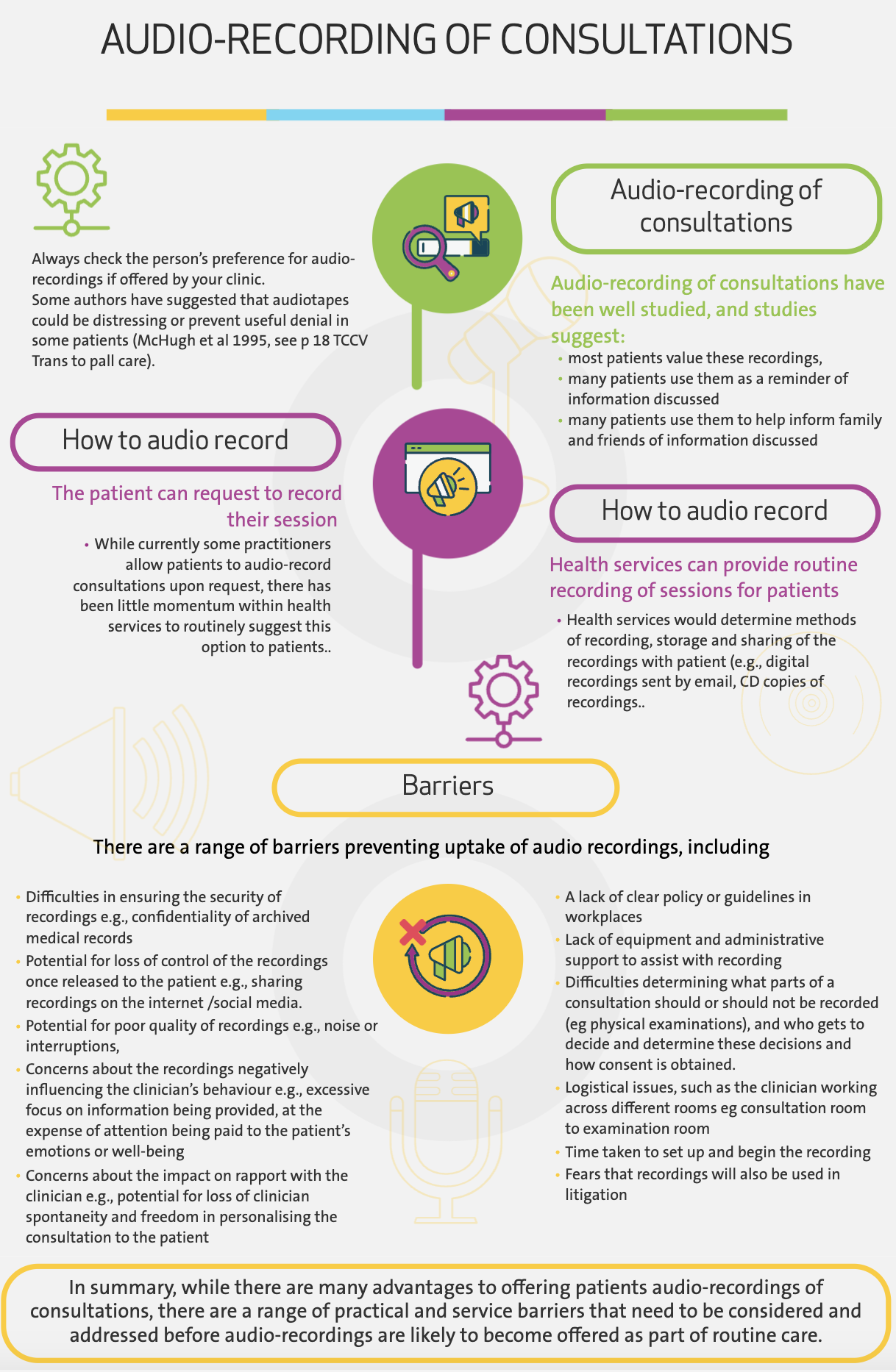Core foundations of patient-centred communication
There is a tendency for clinicians to emphasise their role in delivering information and fixing problems; however, effective communication involves many additional steps and tasks (prior to, or around the information exchange) that promote patient-centred care and communication, and optimise health outcomes.
These tasks help in a number of ways:
-
Establishing a strong patient-clinician relationship
-
Aligning the patient and clinician’s goals
-
Ensuring the right information is conveyed at the right time and in the right manner for the patient
-
Encouraging the patient to be an active participant in the consultation and in their care.
Note: the key communication tasks described below do not have to follow the order listed. Some tasks may not be relevant to your consultation (for example, providing information), while others may be used in any order, or used repeatedly through a consultation (for example, checking the person’s understanding, expressions of empathy). Use these key communication tasks flexibly.
Strategies to increase patients’ participation in communication with health professionals
Some patients will naturally be more active and assertive in their care, while other patients will need encouragement to vocalise their thoughts, feelings and options.
Active patient-participation leads to improved patient satisfaction and quality of health-care.
Studies have shown that clinicians who support patient-participation can increase participation levels.

Want to know more?
Experts from the VCCC Alliance have designed an online education program for clinical staff to practice and refine their patient communication skills: Communication Strategies in Patient Care.
This microlearning has been adapted from the course Communication Strategies in Patient Care.
Communication Strategies in Patient Care was the brainchild of a multidisciplinary team from Peter MacCallum Cancer Centre, St Vincent’s Hospital Melbourne, The Royal Melbourne Hospital, Western Health, Bendigo Health and the University of Melbourne. Former and current patients; men and women, young and old, from a range of backgrounds, who are passionate about sharing their experiences to improve things for others, have generously given their time to the project.
The project was developed by:
Dr David Kok – Radiation Oncologist, Director of Training, Peter MacCallum Cancer Centre, and VCCC Alliance Convenor, Master of Cancer Sciences
Ms Justine Diggens – Senior Clinical Psychologist, Peter Mac
Dr Daniel Sapkaroski – Radiotherapist and Clinical Educator, Peter Mac
Dr Sathana Dushyanthen – Medical Educator, University of Melbourne and VCCC Alliance
Project sponsors:
A/Professor Jennifer Weil – Deputy Director Palliative Care Medicine, Palliative Medicine Physician and Palliative Care Clinical Trials Lead, St Vincent’s Hospital Melbourne
Dr Alex Clinch, Peter Mac Palliative Care Consultant, Deputy Director Parkville Integrated Palliative Care Service - The Royal Melbourne Hospital and Peter MacCallum Cancer Centre
Resource details

This course is brought to you by
Alliance members




